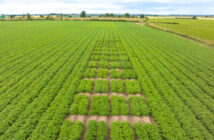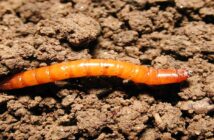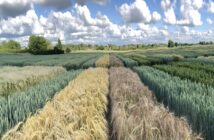“While agriculture should certainly learn from nature, we mustn’t be fixated on it. After all, agriculture and nature are fundamentally different.’ This is the proposition Professor Jan Willem van Groenigen confronts his audience with during his inauguration as professor at Wageningen University & Research.
“As a soil ecologist, you have to treat statements such as “agriculture should learn from nature” with caution. Because nature is wonderful and endlessly fascinating; but also merciless and unfair. It is not always the answer to everything. Agriculture is rational and artificial, and while these two systems certainly have similaries, the two are inherently different. If we try to copy nature meticulously, we can also miss out on great opportunities as soil ecologists,’ says WUR”s soil-biochemistry professor.
Professor Van Groenigen devotes himself to exploring the role that soil life can play in sustainable agriculture. The extent of biodiversity in soil is incomparably large, says the professor. “Bacteria, fungi, all sorts of critters as well as plant roots form the world”s most versatile ecosystem; and that life is the engine behind almost everything happening in the soil.’ Van Groenigen’s research includes the role of earthworm biodiversity.
Worms are good for the structure of agricultural land, as they allow air and water to penetrate more quickly and deeper. “However, worms can do much more. Research conducted in natural systems already shows us they can make soil more fertile by breaking down organic matter, a process that releases nutrients for plant growth. However our research reveals that worms in intensive agriculture systems can play another entirely new, positive role: they release phosphate from previous over-fertilization which is chemically bound to the soil and make it available for plants. This is a role they don’t play in nature, which you can only discover by collaborating closely with soil chemists and agronomists,’ says Professor Van Groenigen.
Worm hotel
Around twenty species of earthworm occur in the Netherlands, each with their own behaviour and soil-type preference. To conduct research more easily into the role worms play in soil, Professor Van Groenigen is setting up a unique facility: a worm hotel. “This accommodates various species of earthworm in conditions that are ideal for them, and we have them readily available for our research.’ The worm hotel currently has 15 “rooms,’ each with a surface area of 3 x 3 m. “At first I wanted to call it an “eartworm zoo,” but I thought “worm hotel” sounds a little friendlier. Moreover, if the worms really want to, they can quite easily escape to nature’. The hotel will soon be welcoming its first guests, which will primarily be used in doctoral and other research into the role of worms in phosphate uptake by plants and in regulating greenhouse-gas emissions.
The picture above shows the worm hotel
[youtube http://www.youtube.com/watch?v=vt77IvHaZuY]



